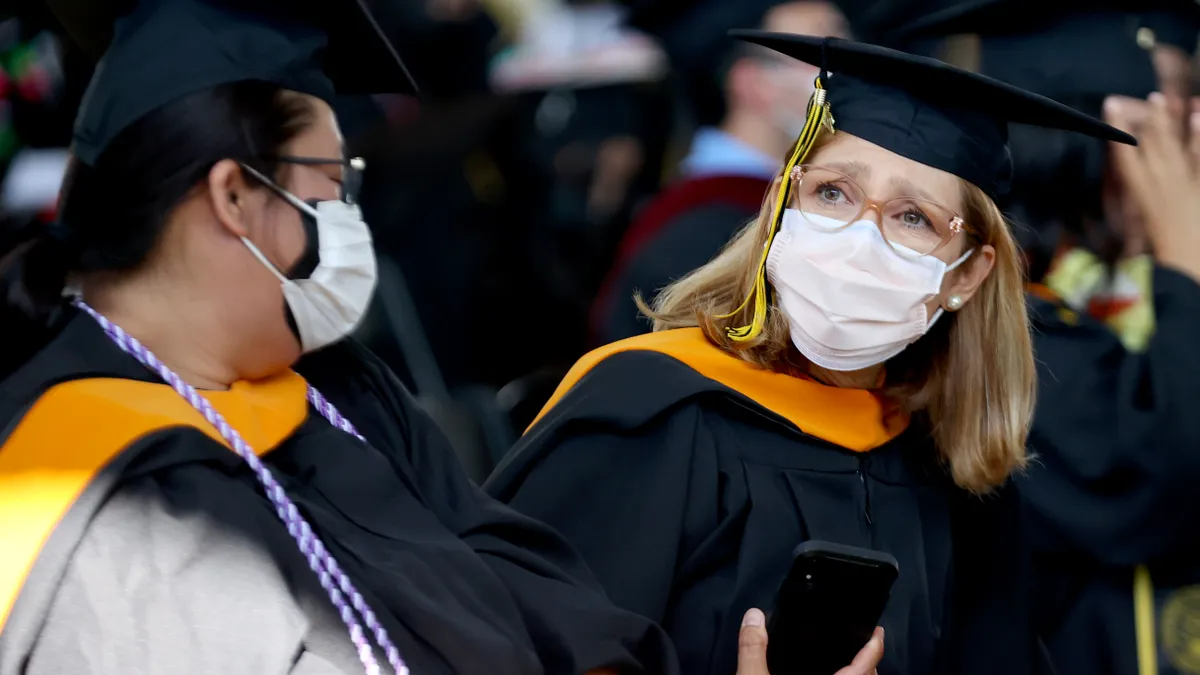The class of 2023 is about to enter the workforce. And as the first group of college grads whose undergraduate experience was completely shaped by COVID-19, they say their mental health is a little worse for wear.
In a recent survey conducted by a higher education wellness provider, these newcomers said that while they’re hopeful for the future, the pandemic worsened their mental health. And that has negatively affected their workforce readiness, they said.
Nearly all respondents said employers should offer mental and emotional health benefits, according to the April 19 results, and more than a third said they’re prioritizing companies that do so during their job search.
The students’ request echoes what some in the workforce say, too: Employees have expressed a desire for wellness benefits in several recent surveys, with some voicing a particular interest in mental well-being.
But even when employers offer such benefits, uptake remains low. A majority of workers surveyed by OneMedical at the end of 2022 said they use employer-provided health benefits to access routine medical care; only 19% said they had accessed mental healthcare. Workers attributed the lack of uptake to cost, embarrassment and busy schedules.
Among other efforts, improved employer communication may help workers take advantage of benefits offerings, sources say; year-round communication about access — in a variety of formats — may help employees make use of employers’ full employee value propositions.














